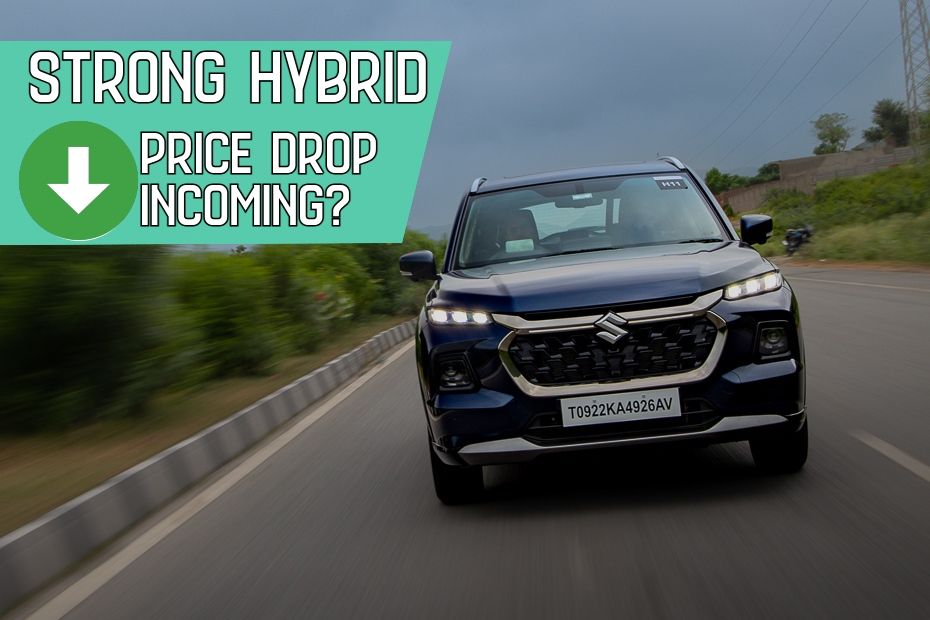3 Ways Hybrids Could Become More Affordable In India
Modified On Apr 01, 2024 02:58 PM By Sonny
- Write a comment
Given the preference for strong hybrids compared to pure EVs, the government might reduce taxation on the greener alternative for faster adoption

The push for electrification in India’s automotive space has primarily been focussed around battery electric vehicles (BEVs), looking to skip the hybrid stage altogether. However, global brands like Honda and Toyota and even Maruti Suzuki, have introduced hybrid models in India in the last few years.
And yet, these models with both petrol and electric propulsion systems carry a hefty premium over their combustion-engined counterparts. For example, the price gap between comparable variants of the petrol and hybrid variants of the Maruti Grand Vitara currently stands at around Rs 3 lakh, though you also get a few additional features. In the case of the Honda City sedan, the premium for the hybrid variant can easily exceed Rs 4 lakh. Going up to the premium MPV space, the Toyota Innova Hycross charges a premium of a little over Rs 2 lakh for the hybrid powertrain.

Other carmakers have not explored hybrid powertrain options due to the lack of government incentives in India. However, given the popularity and preference of hybrids for their lower running costs and comparatively lower purchase price as opposed to pure-EV equivalents, we might see this powertrain technology get more affordable in the future. Here are three ways that can happen:
Reduced Taxation

As mentioned earlier, the Indian government has not been offering any incentives for strong-hybrid powertrain technology, focussing instead on pure EV technologies. However, it was recently reported that the Minister of Road Transport & Highways (MoRTH), Nitin Gadkari had stated that the GST on hybrid vehicles should be reduced from the current 48 percent to 12 percent. In comparison, EVs are levied a GST of 5 percent.
Such a change would require the approval of other ministries as well, but if brought into effect, could reduce the premium of a hybrid variant over a petrol variant by a significant amount.
Lower Material Costs
One of the main cost models that project the increased affordability of EVs states that as the demand and adoption for EVs rises, and the related technologies get more efficient, the cost of input materials will drop. Given that one of the most expensive aspects of a hybrid is the battery pack, lower battery costs should also bring down the prices of hybrid models. Increased demand for hybrids could also play a role in lowering the cost of metals and minerals used in battery packs.
Discount Incentives

While the lower taxation will certainly help reduce prices for hybrids, further financial incentives in the form of discounts might be required. These discounts could be either government-backed, or even from the manufacturer’s side to further incentivise new car buyers to choose greener options. This could include added discounts on exchanging an old petrol or diesel model in lieu of a hybrid option.
These are some of the significant ways that the highly fuel efficient hybrid models could become more affordable in the next few years. Currently, the only mass-market strong hybrids on sale in India are the Toyota Hyryder, Maruti Grand Vitara, Honda City eHEV, Toyota Innova Hycross and Maruti Invicto.
1 out of 1 found this helpful













